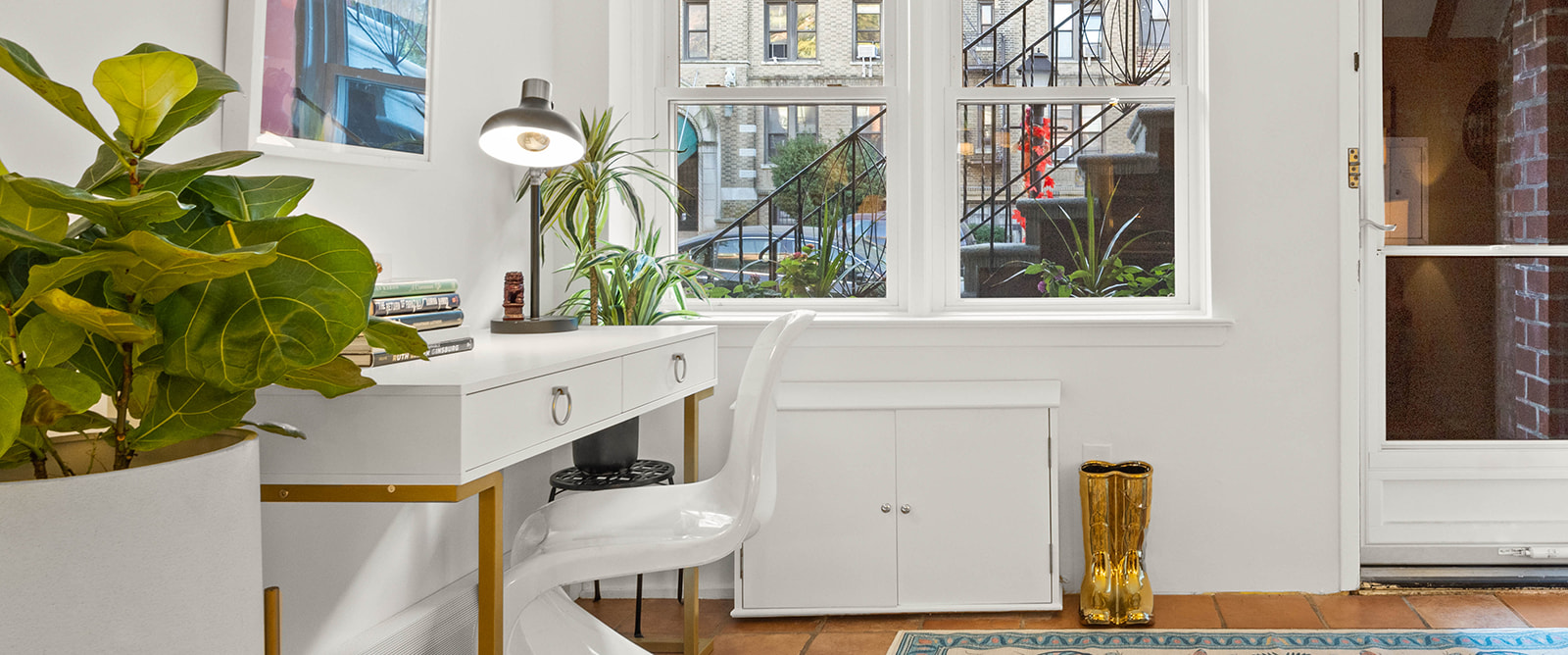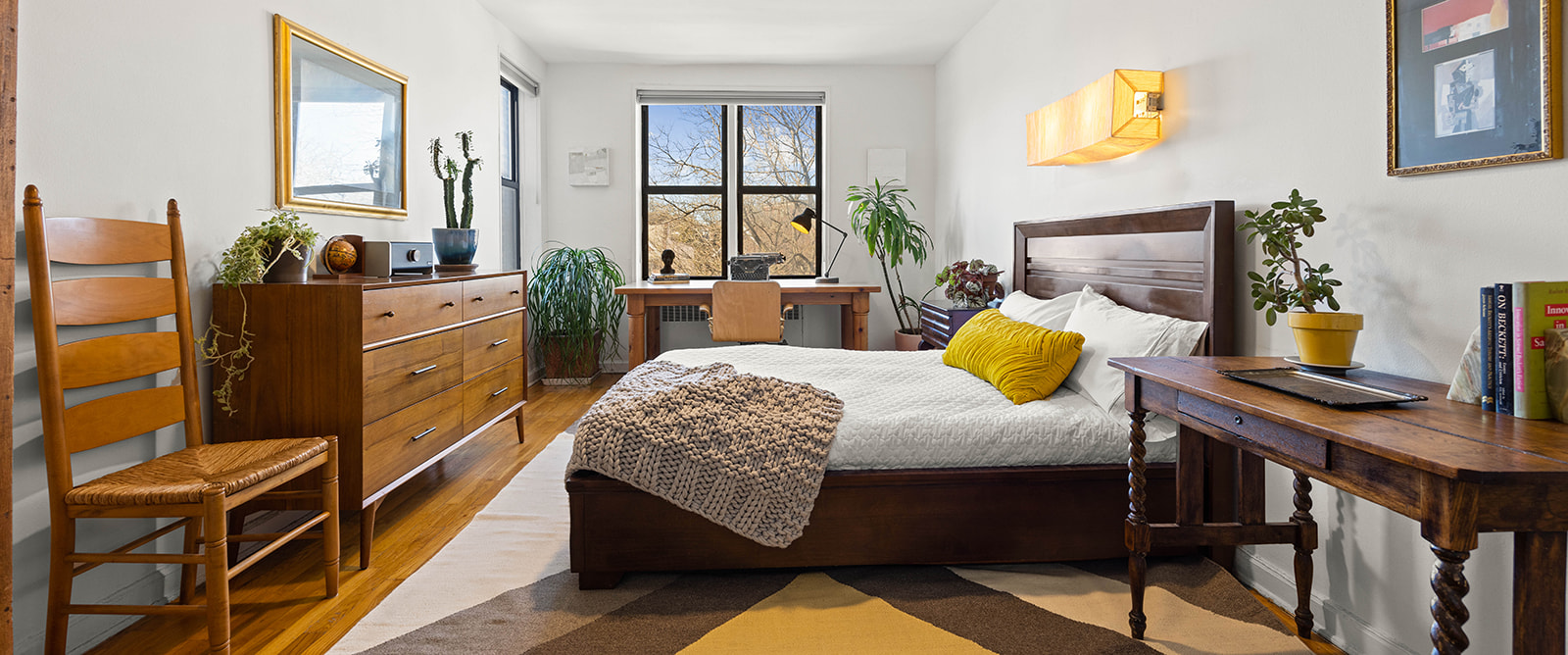
What are Co-ops, Condos and Cond-Ops in Brooklyn Real Estate?
With so many different real estate terms to understand, buying and renting in Brooklyn can seem daunting. But don’t worry, our expert team of Park Slope real estate agents is going to help clear up some of that terminology for you today.
If you’ve already started searching for a Brooklyn home rental or you’re looking to buy in Brooklyn, you’ve probably come across the terms co-op, condo and cond-op. And if not, you will likely see them pop up once you kick off your search.
Here’s what you need to know about each.
What is a Brooklyn Co-Op?
Brooklyn co-ops, or cooperatives, make up nearly 80% of all apartments on the market in Brownstone Brooklyn and Manhattan. When you buy into a co-op, you’re actually buying shares in the corporation that owns the building—specifically, shares that are allotted to the apartment you wish to occupy or own.
Typically, the larger your apartment and more amenities attached to it, such as parking or outdoor space, the more shares you will own. Shares can also fluctuate depending on the floor a unit is on and/or light and views it offers. Shares were decided when the building was originally built or converted to a co-op and are listed in the offering plan.
Per Internal Revenue Service rules, there must be a “relative and reasonable relationship” between shares and the comparative value they hold within the co-op at large.
After your co-op closing, you will receive a stock certificate and proprietary lease rather than a deed. Like any corporation, a co-op is run by a Board of Directors who are voted onto the Board by shareholders in the co-op. Shares represent your rights to ownership in the building and that right is expressly outlined in the proprietary lease.
Benefits of Buying a Brooklyn Co-op
Do you value a strong sense of community? Co-ops are deeply rooted in community because decisions are made collectively amongst the Board of Directors, who are fellow shareholders and neighbors.
Due to the co-op screening process, foreclosures are rare because co-ops typically require a minimum 20% downpayment, and the Board thoroughly vets the financials of prospective shareholders factoring their debt-to-income (DTI) ratio and post-closing liquidity. In the rare event that a shareholder does default on their loan, the building itself is first in line when it comes to recovering funds.
And when it comes to closing costs, they tend to be significantly less with Brooklyn co-ops than with condos.
Maintenance Fees
Co-op maintenance fees cover things like heat, hot water, grounds maintenance, staff salaries, insurance, real estate taxes and any remaining underlying mortgage for the building itself.
Maintenance fees might initially seem a bit jarring but remember that the portion used for real estate taxes and mortgage interest is typically tax deductible.
Screening Process
Any type of screening process can be scary but co-op screenings are nothing to be afraid of. After all, if all your future neighbors and fellow shareholders have already undergone the screening process, you can do it too!
You’ll be asked to submit a board package that includes a purchase application, financial details regarding your income and assets, and references.
As a prospective shareholder, you are then screened in person by a Board of Directors who inquire about your financial qualifications and character before granting approval. This helps ensure that all of a building’s residents are financially secure, will abide by the house rules and are in agreement on how much or little rental activity is allowed.
Though rare, a Board has the option to deny an applicant.
What is a Brooklyn Condo?
A condominium, or condo, is similar to purchasing a house since every unit comes with its own deed and tax lot. Condos are often priced a tad higher than comparable co-ops because you pay mortgage debt up front. In many cases, you are able to finance a larger portion of your condo purchase (up to 90%) than you are a co-op purchase (typically 80% or less).
Condos can be ideal for buyers in need of flexibility, such as investors, but of course, many non-investment properties are also structured as condos.
Common Charges and Real Estate Taxes
Though monthly common charges for condos are typically less than co-ops, they don’t usually include utilities. Instead they cover the general building maintenance and supplies, payroll, management fees and building repairs. And there is no remaining underlying mortgage to be paid for the building itself.
For Brooklyn condos, real estate taxes are always paid separately by each individual owner. However, sometimes new condos are tax-abated for a set period of time, often around five to 25 years, and the taxes are phased in towards the end of the abatement. In general, condos tend to be newer construction than co-ops although there are some condos housed within pre-war buildings.
Screening Process
Though some Brooklyn condo boards do opt to screen prospective owners or renters, the screening process is not usually as involved as when buying or renting a co-op. And if a condo does not have a formal screening process, that means you are free to close as soon as you secure your mortgage provided the Board provides a Right of First Refusal, meaning the building itself is foregoing their right to buy the unit you wish to purchase.
What is a Brooklyn Cond-Op?
A cond-op is a residential co-op where the ground floor (often a commercial space) has been converted into a separate condo. The resulting condo is owned by either the original building sponsor or an outside investor, and the co-op does not receive any of the income generated by the condo.
Maintenance Fees
Like co-op maintenance fees, cond-op fees cover things like heat, hot water, grounds maintenance, staff salaries, insurance, real estate taxes and any remaining underlying mortgage for the building itself. The portion of cond-op maintenance fees used by the building for real estate taxes and mortgage interest is typically tax deductible.
Screening Process
Similar to co-ops, cond-ops involve a screening by the Board of Directors. Prospective shareholders are vetted based on financial qualifications, character and willingness to abide by the house rules. Cond-op rental activity is also controlled by the Board, so the building remains a primarily owner-occupied residence.
Just like with co-ops, you will submit a board package to the Board which includes a purchase application, financial details regarding your income and assets, and references. You will then be interviewed.
Though rare, a Board has the option to deny a cond-op applicant.
Visit our guide pages for more information about the differences between co-ops, condos and cond-ops, and how you can benefit from hiring a Brooklyn/Park Slope real estate agent when buying, selling or renting.
Ready to make your move with a top Brooklyn real estate agent?
-
Holiday Decorating Tips for Small Spaces
-
Moving to Brooklyn: 7 Ways to Get Around the City
-
9 Ways to Maximize Light in Your Brooklyn Home
-
ART BREAK #8 — Brooklyn Through the Eyes of Artist Marji Shemanski
-
ART BREAK #10 — Brooklyn Artist Fanesha Fabre Reflecting Stoop Life
-
A Springtime Playlist to Uplift Your Spirit


